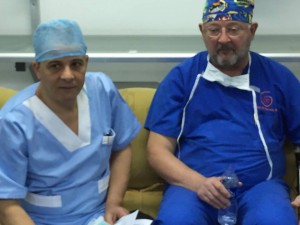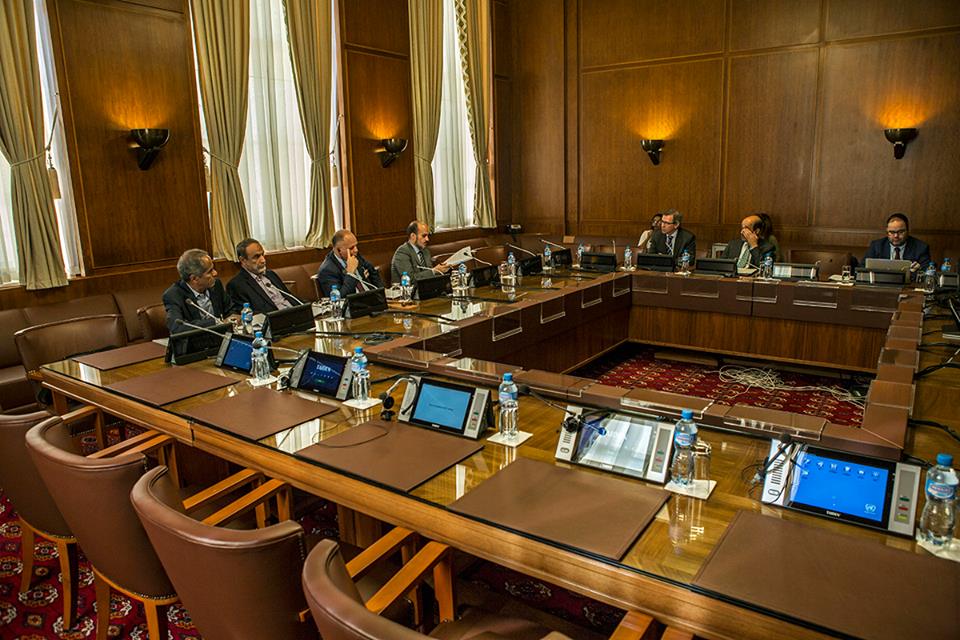By Reida El Oakley.

4 September 2015:
The Middle East Institute spoke to Reida El Oakley, Libya’s internationally recognised Minister of Health, about the . . .[restrict]state of health care in the country and how Libya could receive the funding it desperately needs.
What are the current conditions for Libya’s health care system?
Since the election of the Libyan government last year, conditions have vacillated between terror and all-out civil war, with periodic power vacuums resulting from factional and inter-civilian conflict. Such protracted crises pose significant challenges to the availability of health care resources. The influx of patients requiring immediate medical attention—as well as long-term rehabilitation—is compounded by a lack of medical supplies, diminished numbers of health care workers, and the destruction of hospitals and other infrastructure.
What are Libya’s options for receiving health care funding assistance?
The ready availability of funds for health care is crucial for saving lives in such times, yet the routes to receiving and distributing these funds are limited. Charitable responses to crises have the potential to raise significant amounts of money, but they only go so far. Appeals can last from weeks to months, and the amount of money raised is often dependent upon press coverage and the way that the crisis is presented. Time is of the essence in war zones, and funds, when they materialize, often come too late for many victims.
Even when donations are forthcoming, it’s not always wise for governments of countries embroiled in crises to be tasked with the responsibility of managing them, as they may be in transition and lack the capacity or they may be pursuing an agenda of their own.
There are several options available to the Libyan government at this time, though they are not all desirable. There is the option of borrowing, but this incurs high costs, an outcome that the Libyan government is keen to avoid. Another is that of deferred payment, but unless this is managed well, it can produce exorbitant costs. The third, the most efficacious yet most contentious option, is the use of frozen assets. Tens of billions of Libyan currency are frozen in accounts around the world, though their value is depreciating. A study shows that, compared to gold, currency has lost 80 percent of its value over 10 years. It is imperative that these funds are released to benefit Libya’s populace, whether that means releasing it to the Libyan government or to an external body.
Is there a precedent for unfreezing assets?
The United Nations has done so effectively in the past. In 2011, the Netherlands released $110 million of frozen Libyan assets to the UN. The residual of these funds allowed the incumbent health minister to guarantee adequate interagency trauma kits, treat 30,000 injured, supply the basic need for obstetric care for over 10,000 deliveries, and guarantee equipment and supplies for dialysis, some vaccines, and other essential medicines. It also permitted the minister of health to facilitate urgent visits of charities and NGOs that performed heart operations on children and adults who required cardiac intervention and acute trauma care.
The release of these funds may have saved hundreds of lives, particularly since the Libyan economy has floundered during the war. Prior to Qaddafi’s fall from power, Libya’s oil fields were producing 1.7 million barrels of oil per day. Today, oil production is a mere 400,000 barrels a day. As Libya’s economy is oil dependent, one can recognize the fiscal issues that the temporary government is currently facing. Costs have been complicated by a drop in oil prices as well as the labelling of Libya as high-risk for investors, causing transportation costs to more than double due to the high rates demanded by insurance companies. The main victims of poor economic performance and high transportation costs are patients suffering from cancer, cardiovascular disease, and metabolic disorders, because their medicines are very expensive commodities that have been rendered unaffordable by these circumstances.
How do you move from a reactive to a proactive model for funding health care in times of crisis?
There are two ways to improve the funding of crisis health care. The first is to increase assistance contributions to the United Nations, a move that would draw protestations from many. Another option would be a global insurance system, inspired by Singapore’s domestic health care model, which relies on personal health savings accounts provided for each citizen by the government. If an account runs out of money, charges are drawn from the next of kin’s fund, or in the case of those without relatives, the government provides financial assistance. Singapore’s health care management prevents those truly sick from being crowded out, thereby improving efficiency for wait times and speeding the process from diagnosis to treatment.
Under this model, applied at a global level, each country would pay between $1 and $10 per capita into a fund exclusively for their country’s benefit during a crisis. These funds would be managed by the United Nations (and/or the International Committee of the Red Cross) and would be released when a UN vote decided that a crisis warranted their release. The United Nations would also manage distribution if the government in question was deemed unable to manage the money properly. Wealthier countries could decide to release some of their funds toward countries in critical situations
This article was first published by the Middle East Institute on 31 August 2015 .
![]() [/restrict]
[/restrict]







